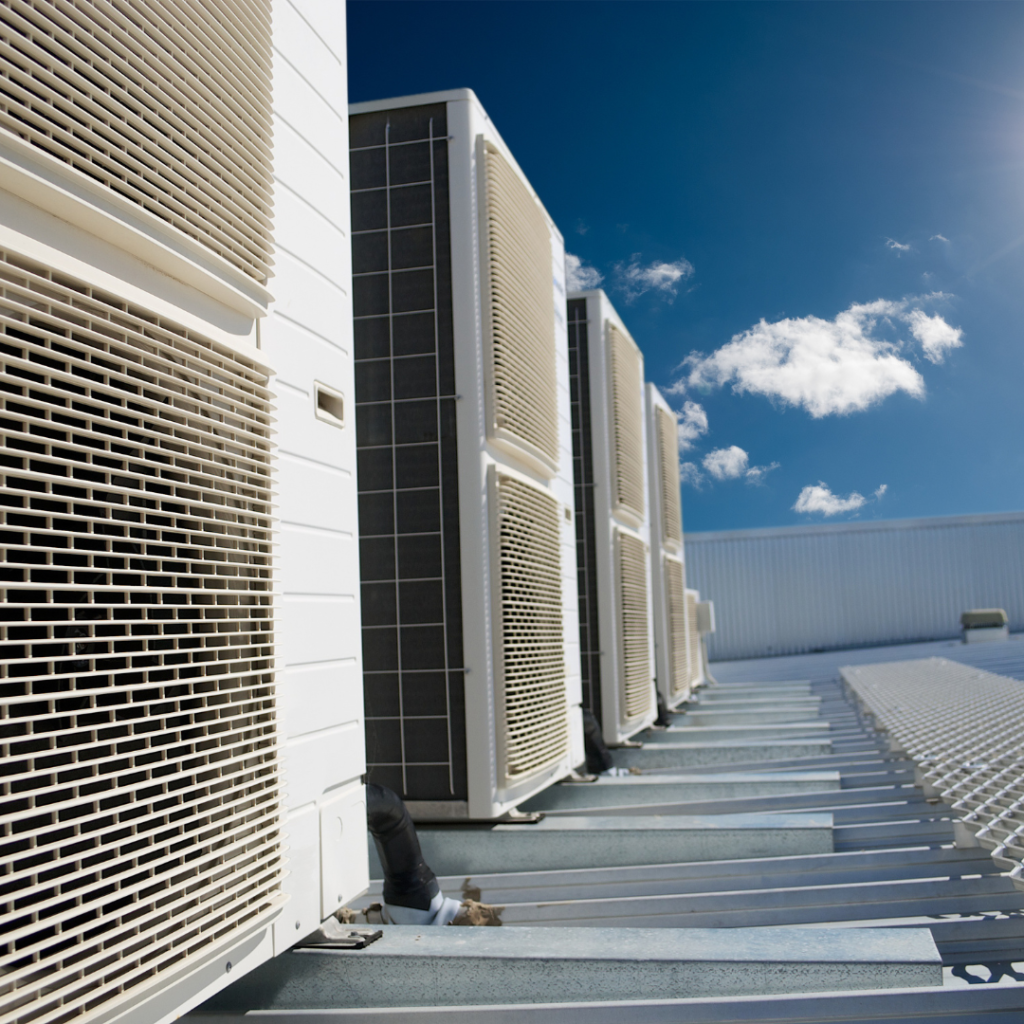Advantages of VRF Systems for Commercial and Residential Building HVAC Applications
In today’s world, energy efficiency and optimal climate control are paramount for both commercial and residential buildings. Variable Refrigerant Flow (VRF) systems have emerged as a revolutionary solution, offering many benefits over traditional HVAC systems. At Alviz Electro India Pvt. Ltd., we believe in harnessing the best technologies to meet the diverse needs of our clients. Here’s why VRF systems are an excellent choice for modern HVAC applications.
What is a VRF System?
VRF technology uses refrigerant as the cooling and heating medium, allowing multiple indoor units to be connected to a single outdoor unit. The system adjusts the refrigerant flow to each indoor unit based on the specific requirements of each zone, providing precise temperature control.
Advantages for Commercial Buildings

1. Energy Efficiency:
VRF systems are designed to operate only at the required capacity, which significantly reduces energy consumption. By modulating the flow of refrigerant, these systems ensure that energy is not wasted on unnecessary cooling or heating.
2. Flexible Design and Installation:
Commercial buildings often have complex layouts. VRF systems offer flexible piping and wiring solutions, making installation easier and more adaptable to various architectural designs.
3. Zoning Capabilities:
With VRF systems, different zones or areas within a building can be individually controlled. This means conference rooms, offices, and common areas can each maintain their preferred temperatures, enhancing comfort and productivity.
4. Low Noise Levels:
In commercial environments, noise can be a significant concern. VRF systems operate quietly, making them ideal for offices, meeting rooms, and other noise-sensitive areas.
5. Scalability:
As businesses grow and buildings expand, VRF systems can be easily scaled up by adding more indoor units to the existing outdoor unit, making them a cost-effective and future-proof solution
Advantages for Residential Buildings

1. Space Efficiency:
VRF systems require less space for outdoor units and ductwork compared to traditional HVAC systems. This is particularly advantageous for residential buildings with limited space.
2. Personalized Comfort:
In homes, different family members may have different temperature preferences. VRF systems allow for individual room control, ensuring personalized comfort in every part of the house.
3. Quiet Operation:
Residential areas benefit from the low noise levels of VRF systems, providing a peaceful and comfortable living environment.
4. Energy Savings:
Just like in commercial applications, VRF systems in residential buildings offer superior energy efficiency.
Homeowners can enjoy lower energy bills while maintaining optimal comfort throughout the year.
5. Aesthetic Appeal:
VRF systems can be designed to blend seamlessly with the interior decor. Indoor units come in various styles, including wall-mounted, ceiling cassette, and concealed ducted units, offering a sleek and modern appearance.
Conclusion
VRF systems are transforming the landscape of HVAC technology with their energy-efficient, flexible, and scalable solutions. Whether for commercial or residential applications, these systems provide unmatched comfort, efficiency, and adaptability. At Alviz Electro India Pvt. Ltd., we are dedicated to bringing the best HVAC solutions to our clients. Explore the advantages of VRF systems with us and elevate your building’s climate control to new heights.
For more information on our range of VRF systems and to find the perfect solution for your needs, contact us today!
Disclaimer:
The blog posts on alviz.in are for informational purposes only. While we aim for accuracy, the content may not reflect the latest updates or specific advice. Alviz Electro India Pvt. Ltd. is not responsible for actions taken based on this information. For expert guidance, please contact us.